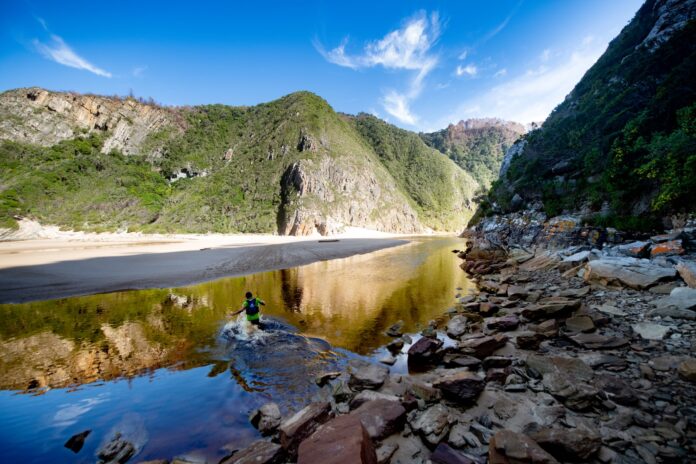The Otter African Trail Run has long been regarded as Southern Africa’s most prestigious marathon-distance trail race, regularly attracting the world’s leading trail athletes.. But over the 13-year life of the event, the rewards for excelling at the Otter were largely around bragging rights rather than monetary attraction. Until now.
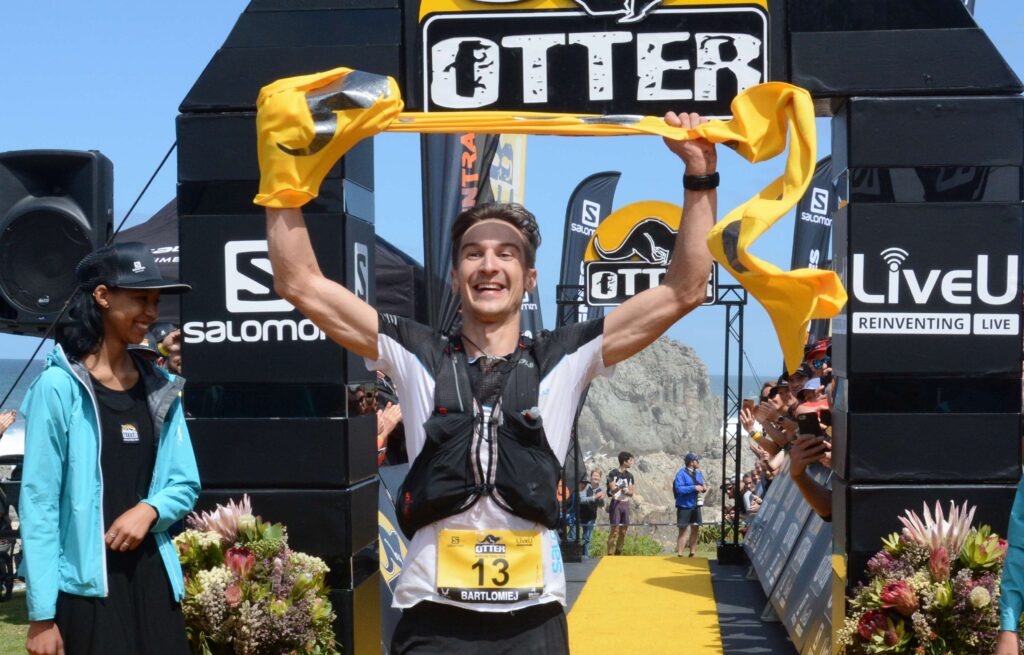
Securing a major sponsorship has transformed event’s prize structures and the 2022 Otter African Trail Run, powered by Easy Equities, has now become the richest marathon-distance trail race in the country. The leading male and female athletes to cross the finish line at Storm’s River this Saturday (8 October) stand to each win R50 000 in cash and equities and a whopping total of R150 000 should they beat the incentive target time on offer.
Swiss athlete, Marc Lauenstein, took advantage of a one-off time incentive of R100 000 for any athlete beating the ‘impossible’ 4 hour mark, put up by Otter African Trail Race Director, Mark Collins, in 2015. In one of the most exciting finishes in the history of the race, he made it home with just 31 seconds to spare to secure the money.
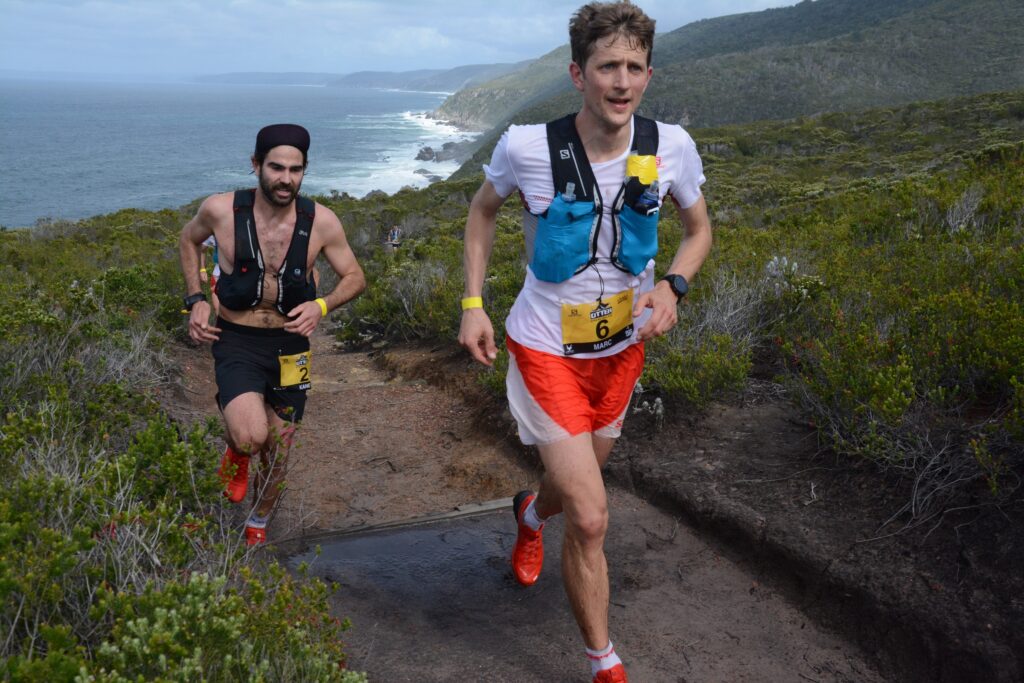
Lauenstein completed the heist again the following year when the ‘one-off’ offer was repeated for the 2016 ‘Retto’ Race (although he generously donated half to a local development fund), but typically prize money was not the reason for top trail athletes travelling to the Southern Cape in October every year.
This year the incentives are back, but the prize money has also been significantly boosted. This year’s Otter will reward podium finishers in the elite Otter African Trail ‘Retto’ Run with a total of R90 000 (R25 000 1st place, R15 000 2nd place, R5 000 3rd place for both men and women). And those amounts will be doubled by the sponsor (in the form of funds into Easy Equity accounts, with the proviso that the prize winners are registered with Easy Equities prior to the race).
Once again, time incentives offer a sweetener to athletes chasing line honours, with R50 000 on offer for the first South African male athlete to break the magical 4:00 hour barrier and the first female athlete to finish inside 4hr 40 min. And again, the sponsor will double the time incentives with funds in Easy Equity accounts.
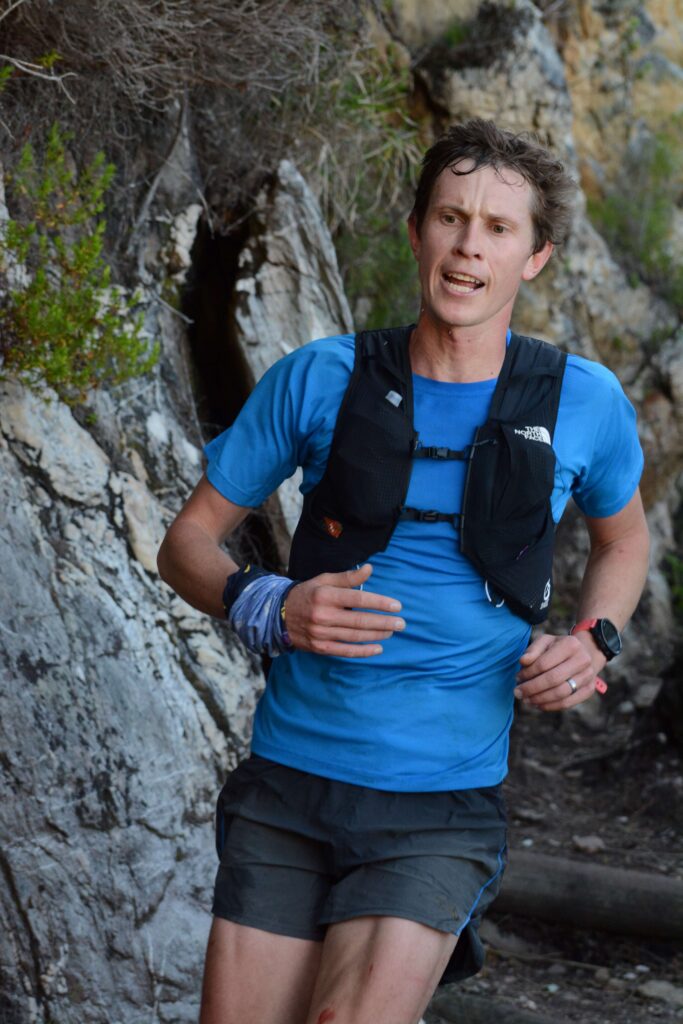
If the men’s race is won in under four hours and the women’s under 4 hours 40 minutes, a total of R380 000 in prize money and equity funds could be won on the day. And given recent performances of South Africa’s leading trail athletes, this appears a real possibility.
Johardt van Heerden was narrowly beaten into second place by Spanish athlete Pere Aurell at the last Retto in 2020, clocking 4:03:50, but the former Mpumalanga athlete, now based in Cape Town, clocked 4:02:59 for the classic “Otter” in 2019. Running just five seconds per kilometre faster will see him dip under the 4-hour barrier, whereas Robbie Rorich (4:10:54 Retto best) and Kane Reilly (4:11:07 best) are also within range of the big prize.
Toni McCann ran to within 30 seconds of the 4:40 target in winning the Retto in 2020. After her season with the global adidas TERREX team, she would be a strong bet to run less than 1 second per kilometre faster to clinch the incentive and close in on British athlete Holly Page’s 4:37:48 record set in 2018. At the time of writing, it was not certain whether McCann will be racing Otter, but her adidas TERREX teammate, Bianca Tarboton, has confirmed.
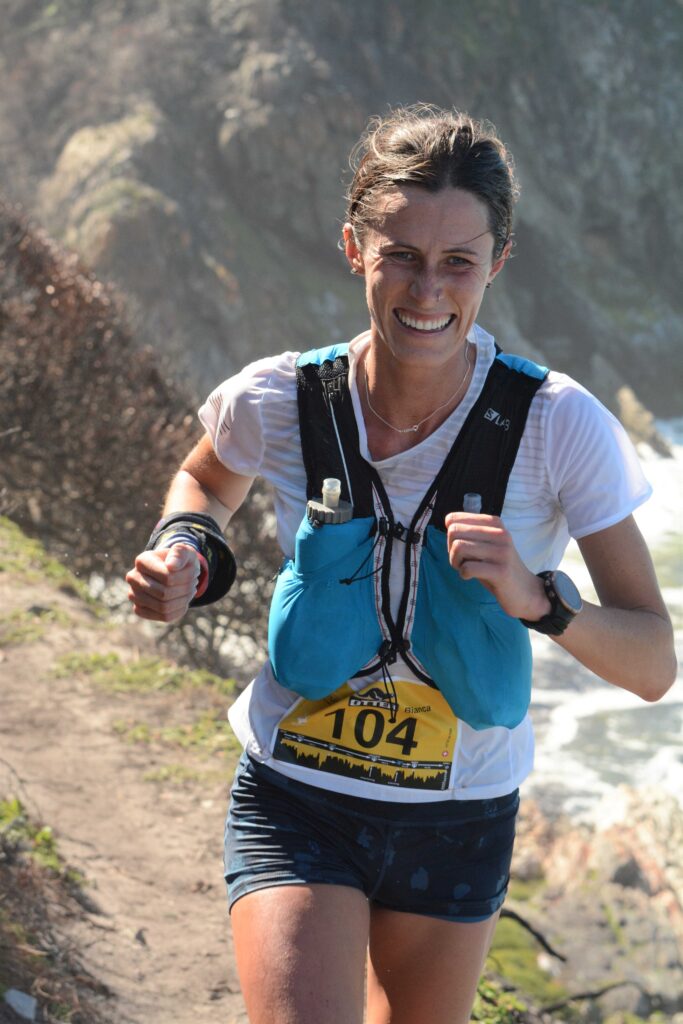
Tarboton ran second to McCann at the Retto in 2020 in 4:53:01 and won the Otter Classic race last year in 4:45:34. Like McCann, she has enjoyed several months of racing in Europe against the world’s top competitors this year and also has the ability of running under the magical 4:40 mark on Saturday.
The Otter has carved itself a unique niche in the trail running world and their sponsor, Easy Equities, appears to be re-defining models for strong sporting partnerships. Far from focusing merely on their bottom line, they are themselves embracing the physical and mental health benefits associated with trail running and the outdoors. Incredibly, almost a fifth of their total staff complement of 180 are taking part in either this year’s 42km Retto Race or the 10km Dassie Run.
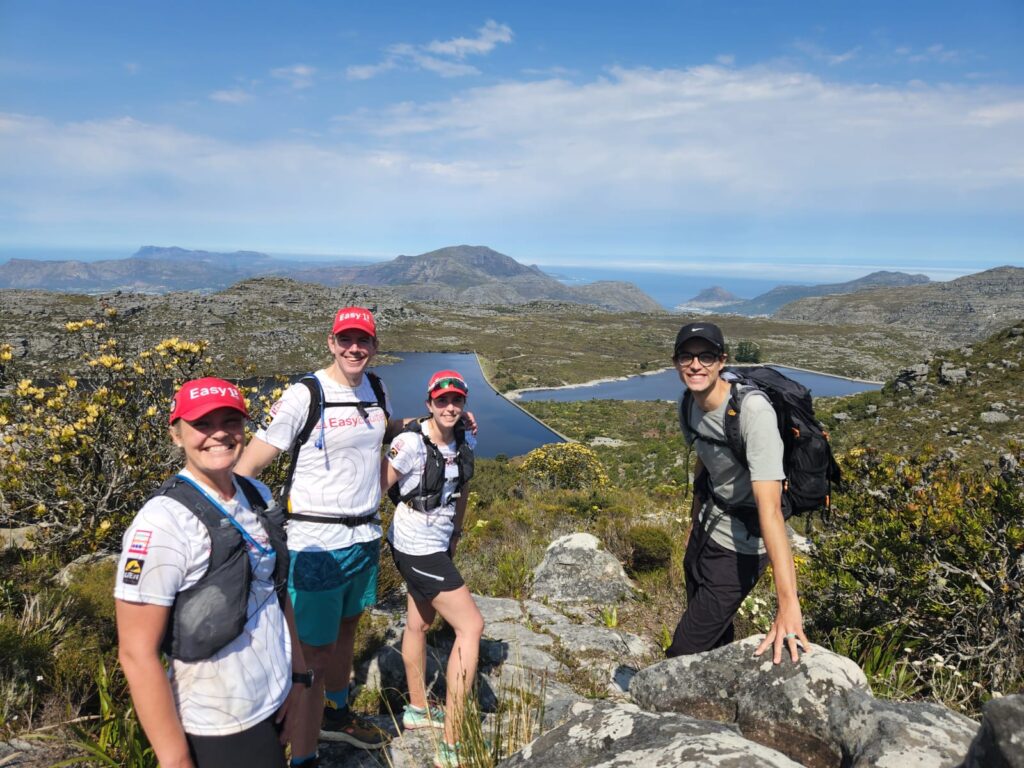
“Apart from our focus on building wealth, we are committed to working within our community,” said Easy Equities VP of Wealth, Craig Turton. “Healthy finances are important but so are healthy bodies and minds. Living a balanced life is so important. We encourage our investors not just to focus on money but to get out and exercise, preferably outdoors. We’re on a journey to get people to live balanced lives. And the Otter is a big part of that.”
Turton attests to the difference that their partnership with the Otter has made to their company. “It’s been great that many of our team have taken up running and we have used this to strengthen our team-work,” Turton said. “We have a regular Tuesday afternoon session after work when we run out 2km to the Westcliff Stairs where we do some testing repeat sessions, ending with a beer.
“At our recent monthly staff meeting we held what we called our “Otter Games” where teams competed for prizes over physically challenging “obstacles” courses, such as blindfolded challenges and one minute burpies and lunges. Training for the Otter has brought us together and we’ve found some trails at Klip River, south of Johannesburg, which have similar terrain to that of the Otter. On Saturdays we meet there for a 20 – 20km workout.”
It would appear that, through their personal application and leverage of their sponsorship of South Africa’s premier marathon-distance trail race, the benefits to the race have been considerably more widespread than they might have at first envisaged, potentially pointing the way to potential future investors in distance running.
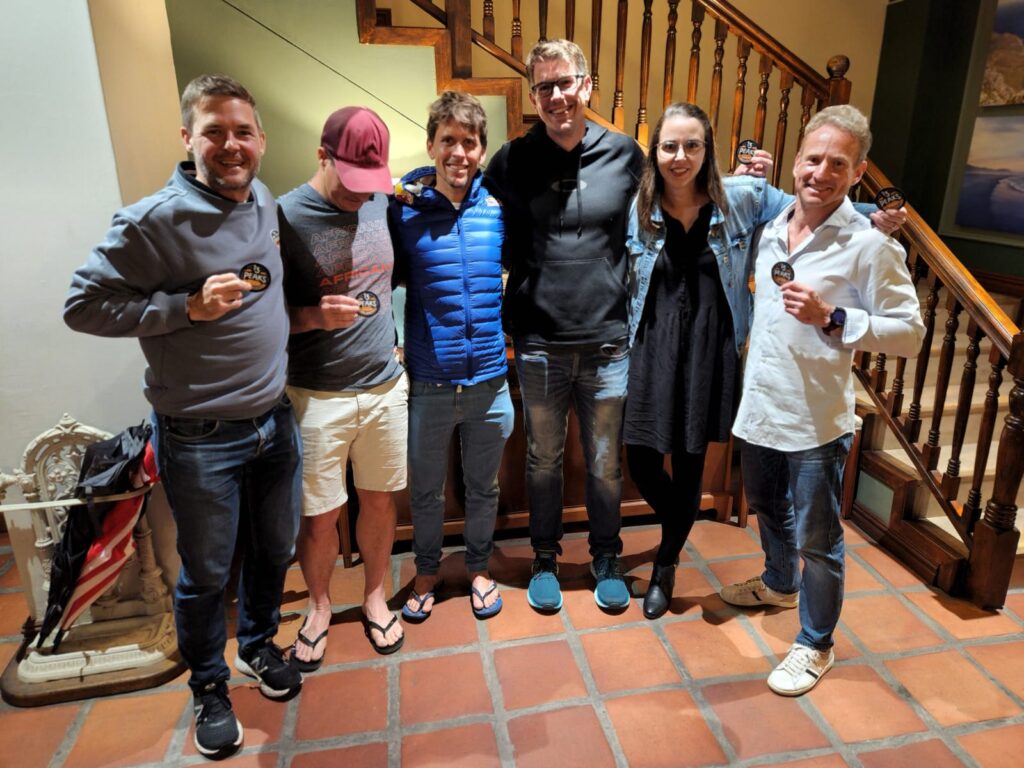
Recently the company’s leaders have been able to enjoy a unique opportunity to walk the famous trail in three days. “Our CEO, Charles Savage, has been under considerable stress through the rapid international expansion of the company,” explained Turton. “And he and his wife have had the opportunity to walk the trail in the last few days with Mark Collins leading them. From what we have heard it’s been a refreshing and life-changing experience for them.”
A highlight of Turton and his team’s preparation for Saturday’s Otter was a recent trip from their Johannesburg offices to Cape Town to tackle Ryan Sandes’ 13 Peaks Challenge, which they achieved in four days under the leadership of ‘Love Your Trails’ founder, Blake Dyason.
“Guiding this team over Table Mountain to tag the iconic 13 peaks was a huge privilege,” said Dyason. “They are all strong and fit as they prepare for Otter but what stood out the most from their completing the 13 Peaks was the value of spending time in nature with friends and colleagues doing something challenging.
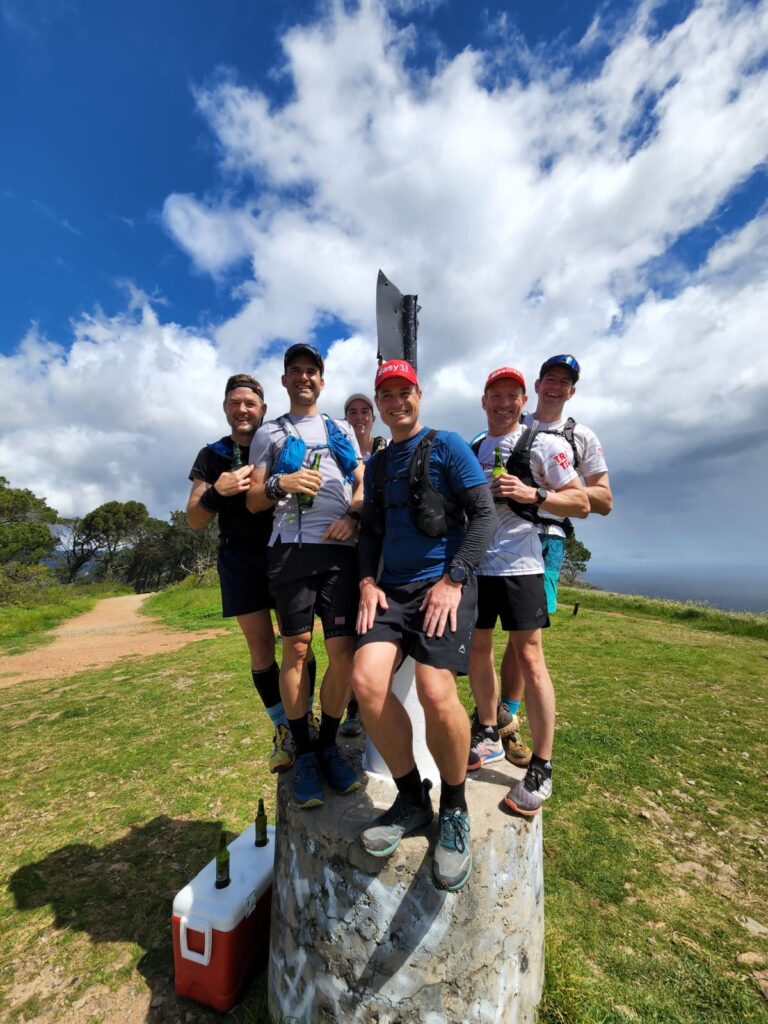
“It was clear through the challenge that they 100% believe and live the values of balancing the importance of wealth investment with mental and physical health. We all left the challenge better people, with more respect and understanding for each other, ourselves and our environment.”
